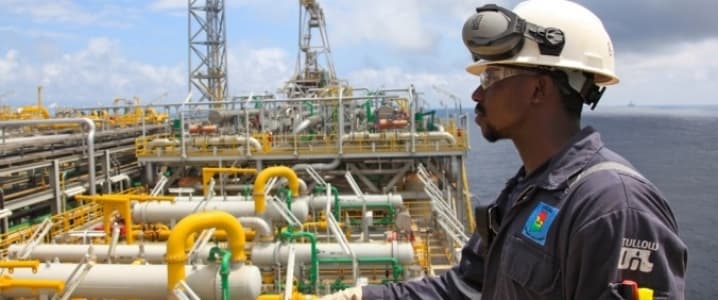The oil bust, today’s volatile market and relentless OPEC chatter, it’s easy to lose sight of the fact that the oil market—even at current valuations—is somewhere near the $1.7 trillion mark, and as such, has the unique power to build or break nations.
Often referred to as the oil curse, many countries, such as Venezuela, Algeria and others, depend almost entirely on oil and gas income to sustain their economies. And while oil—or any single resource for that matter—is seldom a saving grace for a country with limited growth, the recent fall of crude oil prices have introduced a whole new level of desperation in governmental entities that have allowed their economies to rely solely upon oil.
The thirst for oil and natural gas drilling never seems to die, regardless of price. In fact, there is an increasing number of countries that become entangled in this oil curse in order to bring new wealth to their citizens, despite today’s difficult price environment.
This is a lofty goal, and may even be well intentioned, but more often than not, funds derived from oil make their way to the top tier of government—and seem to get stuck there—or reside with private corporations based in other countries. Even with infrastructure developments introduced by the governments using the new money, the poor tend to stay helplessly poor.
A number of Asian countries, notably China, Malaysia and Indonesia, have adopted a dual-track development strategy that pursues a strong manufacturing sector alongside natural resource exports. But this setup requires strong and disciplined national parties that are able to continue an economic plan despite changes in executive leadership or political ideologies.
Unfortunately, the South American and African countries that are most vulnerable to the resource curse often see contested elections, political violence, and deep corruption – all of which prevent intelligent financial planning that would benefit the countries’ citizens.
Nigeria is under `this curse. Resource rich and economically poor, the Niger Delta Avengers’ (NDA) efforts in their home region testify to the frustrating levels of impoverishment found in many oil-rich economies. Nigeria used to be Africa’s largest oil producer until this April, when the militia’s activities caused national production to tank by 700,000 barrels per day.
As a result, Angola has now surpassed Nigeria’s output, and the tide does not seem to be turning, with the NDA returning to its previous notoriety and breaking the ceasefire agreement that it had reached with the government just over a month ago.
The group’s populist agenda calls on the Lagos government to implement the fair distribution of oil wealth contributed by the exploitation of the Niger River Delta. Currently unemployment and poverty run rampant, preventing any economic progress. Related: Saudi Oil Minister: Non-OPEC Producers Are Ready To Join Output Cut
In Venezuela, tanking oil prices have led millions of its citizens to seek basic medical supplies and daily items from across the border in Colombia. President Nicolas Maduro’s failed monetary policies—which include printing more money to fund the massive budget deficit—have caused uncontrollable runaway inflation. Lifetimes’ worth of savings have lost all value, and the government has blocked foreign companies from repatriating revenues.
Venezuela did not have to be in this abysmal financial situation, but alas, roughly a third of its $1 trillion in oil revenues has been embezzled through a 13-year old currency control mechanism described as a “corruption machine,” making the Latin American country a poster child for the oil curse.
Algeria—a country run by the sickly President Abdelaziz Bouteflika who rarely appears in public—employs roughly 60 percent of its citizens through the public sector. Its rapidly depleting hydrocarbon resources mean the loss of income for millions of people, regardless of whether oil prices recover through the Organization of Petroleum Exporting Countries’ (OPEC) next meeting in November.
Bouteflika’s failing health has given his family members and closest political confidantes a political vacuum to fight over; the 79-year-old president’s imminent death could cause a governmental collapse akin to Libya’s ongoing struggle.
Low oil prices exacerbate the already present security issues of international concern, including the fight against terrorism. The Kurdistan Regional Government’s low revenues—due to depressed oil prices and struggles with the Iraqi government—have made it difficult for it to pay its dependable Peshmerga army to fight against the Islamic State. Related: Can Libya’s Oil Rescue It From Economic Collapse?
Kurdistan’s undiversified economy will put it at a crossroads once the Islamic State falls. Today, its strong army may be able to defend the integrity of the land it intends to include in a future country, but when the war ends and soldiers come back to a struggling national government lacking the funds to pay its oil and defense workers, the full effect of the oil curse will begin to set in.
ADVERTISEMENT
Kurdistan control over a large portion of Iraq’s oil resources may have built its regional government, but economic inflexibility could break it too.
The theories behind what drives the oil curse are numerous. But what is clear is that the colossal oil market has made many a nation, while it breaks others who do not already have solid footing. And while countries may thrive or starve at its hand, today’s low oil prices only widen the gap betwixt.
By Zainab Calcuttawala For Oilprice.com
More Top Reads From Oilprice.com:
- Oil Prices Cool Down Amid Tanking U.S. Crude Imports
- Why Oil Could Head Back To $90 Sooner Than Thought
- Why Permian Prices Will Keep Breaking Records


















